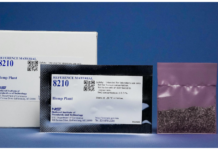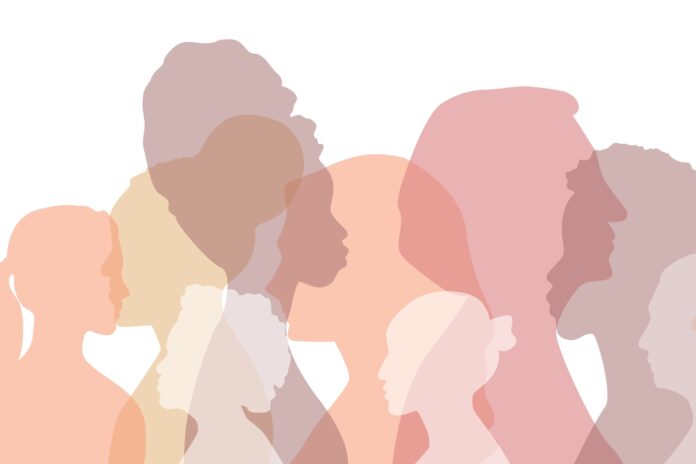Do you feel comfortable talking to anyone about your period cramps or hot flashes? Or what about sharing that you use a sleep gummy or other cannabis product for either recreation or wellness?
Women face societal stigmas in all too many areas of our lives; intimate issues and cannabis use are no exception. As co-founder of Hello Again, an all-natural line of cannabis-infused vaginal suppositories designed to alleviate common feminine woes, I’ve become very familiar with the historical stigmas surrounding feminine sexual health and cannabis use.
The stigma around the sexual health of women isn’t limited to casual conversation between friends; the stigma ripples into the workplace, doctor’s office, investor meetings, marketing campaigns, and more. In more mainstream advertising, the sexualization and objectification of women have been normalized, yet, when we try to control the narrative and portray our sexuality or sexual health openly, doors shut, conversations end, and we’re intended to feel embarrassed or ashamed.
Period underwear brand Thinx brought this double standard to light in 2015. That year, the company submitted an ad campaign to New York City’s Metropolitan Transit Authority (MTA) and its media partner, Outfront, to be run on Manhattan’s subways. The ads show women in nonsexualized positions donning full-coverage underwear and t-shirts adjacent to the words “Underwear for women with periods.” Although well within the guidelines of the MTA’s advertising standards, the campaign was not accepted, instead deemed by Outfront as “inappropriate” and showing “a bit too much skin.” Keep in mind that previous ads on New York City’s subways have featured a close-up of a woman’s augmented breasts bursting out of her top and women in skimpy bikinis — and without any clothing at all. But the addition of the word “period” makes it no longer suitable for MTA subways.
Three years after Thinx, sexual wellness startup Dame experienced a similar exchange with the MTA and Outfront. Dame was granted approval to display ads showcasing their inconspicuous products, accompanied by the tagline “Toys, for sex.” After a few weeks without an issue, Dame was told they would be unable to continue their ads according to an updated policy stating that the MTA prohibits “any advertisement that promotes a ‘sexually oriented business,’ and advertisements for sex toys or devices for any gender fall within this category.” This timely revision allowed the MTA to rescind its initial approval of Dame’s campaign. The brand sued the MTA shortly after (snaps for Dame), but that’s not the point.
The MTA and Outfront essentially declared that male sexual wellness can be publicly discussed and promoted while women’s sexual health and pleasure cannot. Note the acceptable obviously phallic cactus and the banned half-grapefruit that vaguely resembles a vagina.
Whether you believe sexually charged advertisements of any kind should be in highly public places, within the viewership of minors, the obvious disparity is what is at issue.
This disparity is troubling and highly pervasive, reaching and negatively impacting the development of healthy views regarding the body, aging, and sexuality. Young girls internalize the shameful messaging around feminine sexuality, which permeates throughout their stages of development. As a result, many women feel uncomfortable or ashamed seeking information about periods, sexual pleasure, and menopause, and often neglect to ask for the support they need and deserve. Kim Cattrall, famously known for her leading role as Samantha Jones in Sex and the City, described what it’s like to be a woman in menopause in today’s society:
“You wonder, Will I be attractive, desirable, feminine? What is this next chapter of life? I think it’s one of the reasons why it’s [menopause] so taboo is because we don’t talk about it—it’s too frightening even to talk to a doctor about it.”
And yet, the menopause market far outpaces the erectile dysfunction market. According to Zion Market Research, the global erectile dysfunction drugs market is projected to reach roughly $5.94 billion by 2028. Meanwhile, the global menopause market reached $15.4 billion in 2021, nearly triple that of the erectile dysfunction market’s predicted value seven years down the road. According to Dr. Kimberly Peacock of Firelands Regional Medical Center, approximately 1.3 million American women enter menopause each year, meaning there will always be demand for menopause-related treatments. So if money talks, why are the needs of more than half the population met with silence?
This natural, imminent stage of women’s lives brings with it a deeply-ingrained feeling of shame that is confounded by inherent ageism. In a recent interview with Entertainment Weekly, British actress Naomi Watts spoke about her personal experience of being in the Hollywood scene past 40 years of age: “I was told [taps an imaginary watch], ‘You better get a lot done because it’s all over at 40 when you become unf—able.’”
Women should be empowered to discuss their natural bodily transformations and seek out treatment. Instead, society discourages any attempt at open conversation, further breathing life into the stigma at play.
The discrimination extends into how we remedy the side effects of womanhood — specifically in regard to plant medicine. The world has separated medical and recreational cannabis as two stark pockets, but there is a middle ground that is often ignored: the use of cannabis for wellness.
Cannabis has been shown to increase sexual pleasure and reduce cramping, aches, fatigue, and other discomforts that accompany menstruation and menopause, offering women a holistic alternative to pharmaceutical drugs. Cannabis use before sex has been self-reported to enhance aspects of sexual functioning among women, including sex drive, orgasm, and sexual pleasure while decreasing pain. Older women, specifically, have been redefining their relationship with cannabis, using it to boost their personal wellness routines, regain their sexual groove, and tame the discomforts accompanied by perimenopause, menopause, and postmenopause.
Despite the waning stigma surrounding cannabis use across the nation, 66 percent of women using cannabis still feel the need to remain discreet about their cannabis consumption. Some fear judgment from their communities and others fear retribution from their employer. These concerns are real and discourage women from utilizing effective plant-based medicines.
But female cannabis entrepreneurs are answering the calls. Alongside Hello Again, brands such as Lavinia and Quim serve this market of women by providing cannabis-based lubricants and other THC-infused products. It is brands like these that give women the opportunity to address ailments with plant medicine and provide users with a platform to openly discuss their relationship with cannabis, especially in terms of sexual health. At Hello Again, our online submissions are flooded with inquiries and gratitude from women whose needs were previously ignored.
So, here we are with two long-standing and deeply-embedded stigmas surrounding women’s relationship with their sexual wellness: our sexuality and the use of cannabis. The accompanying shame hinders our ability to properly respect and remedy our body’s natural changing needs throughout life and consider natural, plant-based treatment options. It also limits our access to such products. For example, cannabis dispensaries claiming to want wellness products have failed to carry our line of suppositories solely because the buyer doesn’t think the sales staff will be comfortable talking to women about their sexual health.
A large part of our mission at Hello Again is to normalize women’s sexual health and the individualized use of cannabis — but it takes all of us to make this necessary change. The first step is to choose to not suffer in silence. Our bodies, at every age, deserve to be celebrated and empowered. My friend and co-founder, Patty Pappas, and I have chosen to bring this conversation to our friends, family members, and customers to fuel not only our wellness but to pave the way for future generations as well.

Carrie Mapes, with her friend and business partner, Patty Pappas, founded and launched Hello Again products, the only cannabis-based wellness product formulated specifically for women in menopause. Prior to 3 years ago, Carrie had no real relationship with cannabis at all, but curiosity took Carrie and Patty to a dispensary where the two drew a direct line between how cannabis works in the body and what they were experiencing as a woman in menopause.










[…] prohibition and stigma decline, the number of people who are dipping their toes into cannabis, sometimes called the cannacurious, […]
[…] for other women to lead. “I’m often the tip of the spear for our company and in our efforts to destigmatize cannabis within communities,” she said. “It makes me acutely aware of the preconceived notions people […]
[…] Hero’s packaging is part of the company’s mission to normalize cannabinoid use in a particularly conservative state. By creating packaging that mimics more traditional consumer […]
[…] who courted controversy and potential arrest by demanding the end of federal prohibition and working to end social stigma, the industry has matured over time into a vibrant economic engine that attracts high-powered […]